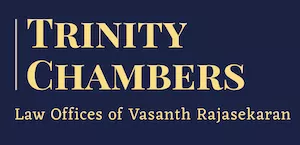Introduction
In a recent decision in Gopal Krishan Rathi v. Dr. R. Palani1, the Madras High Court reaffirmed a crucial principle in arbitration law: an arbitral award need not conform to a rigid format so long as it is intelligible, reasoned, and based on the material presented before the arbitral tribunal. The High Court's ruling aligns with the Supreme Court's pronouncement in Dyna Technologies (P) Ltd. v. Crompton Greaves Ltd. [(2019) 20 SCC 1], which clarified that an award must be "proper, intelligible, and adequate" but does not require the same level of detailed reasoning as a judicial judgment. In this article, we navigate through the facts of the case and the findings of the High Court.
Brief Facts
The dispute in this case revolved around a financial transaction between the appellant, Gopal Krishan Rathi, and the respondent, Dr. R. Palani, governed by a Memorandum of Understanding ("MOU") dated 28.08.2015. The central issue was whether the transaction constituted a loan or an investment.
A sole arbitrator adjudicated the dispute and, on 21.07.2021, rendered an award in favour of the respondent, concluding that the transaction was a loan, not an investment. In this regard, the Sole arbitrator observed that clause 3 of the MOU acknowledged an element of interest but did not specify a fixed rate. Further, the claimed interest component of INR 7,40,000 per month was found not to be fully justified. Accordingly, the sole arbitrator undertook an independent assessment to determine a reasonable amount, considering the nature of the transaction and the underlying contractual terms.
Aggrieved by the award, the appellant challenged the award under Section 34 of the Arbitration and Conciliation Act, 1996 ("Arbitration Act") before a Single Judge of the Madras High Court contending that:
- The arbitrator denied a personal hearing, violating principles of natural justice under Section 18 of the Arbitration Act; and
- The arbitrator failed to consider all 28 documents submitted by the appellant, making the award perverse.
The Single Judge dismissed the petition under Section 34, which led to an appeal under Section 37 of the Arbitration Act before the Division Bench.
Findings of the High Court
The Division Bench upheld the arbitral award and provided a well-reasoned judgment on three critical aspects:
On Raising New Challenges at the Appellate Stage
The appellant's contention that a personal hearing was not granted was summarily dismissed on the ground that it was never raised in the Section 34 petition before the Single Judge. The High Court emphasised that a party cannot introduce new objections at the appellate stage if they failed to raise them earlier.
On Consideration of Documents
The High Court conducted a thorough analysis of the arbitral award and found that the award explicitly listed all 28 documents submitted by the appellant. The arbitrator analysed the evidence in detail, ensuring that only the relevant documents were considered while discarding those deemed unnecessary or immaterial.
No Fixed Format for Arbitral Awards
The High Court led a detailed discussion on whether arbitral awards passed under the Arbitration Act are required to follow any format or not. It was clarified that arbitral awards do not need to follow a rigid structure, similar to judicial decisions. The mandate under Section 31(3) of the Arbitration Act requires an award to contain reasoning, but does not demand an exhaustive or court-like judgment. Relying on Dyna Technologies (supra), the High Court observed that Courts should avoid setting aside awards merely due to brevity, provided the reasoning is clear and logical.
Comment
The Madras High Court's ruling carries several significant implications for arbitration law and practice in India. First, the judgment strengthens India's pro-arbitration stance by restricting judicial review to cases where the award is entirely unintelligible, perverse, or suffers from fundamental procedural flaws. This is in line with the principles of minimal judicial intervention enshrined in Section 5 of the Arbitration Act. Second, the High Court reaffirmed that arbitral reasoning need not be elaborate so long as it is intelligible and adequate, ensuring that arbitration remains a speedy and effective alternative to litigation. Third, the judgment serves as a reminder that procedural objections must be raised at the earliest stage.
Footnote
1. OSA (CAD) No. 141 of 2023.
The content of this article is intended to provide a general guide to the subject matter. Specialist advice should be sought about your specific circumstances.



